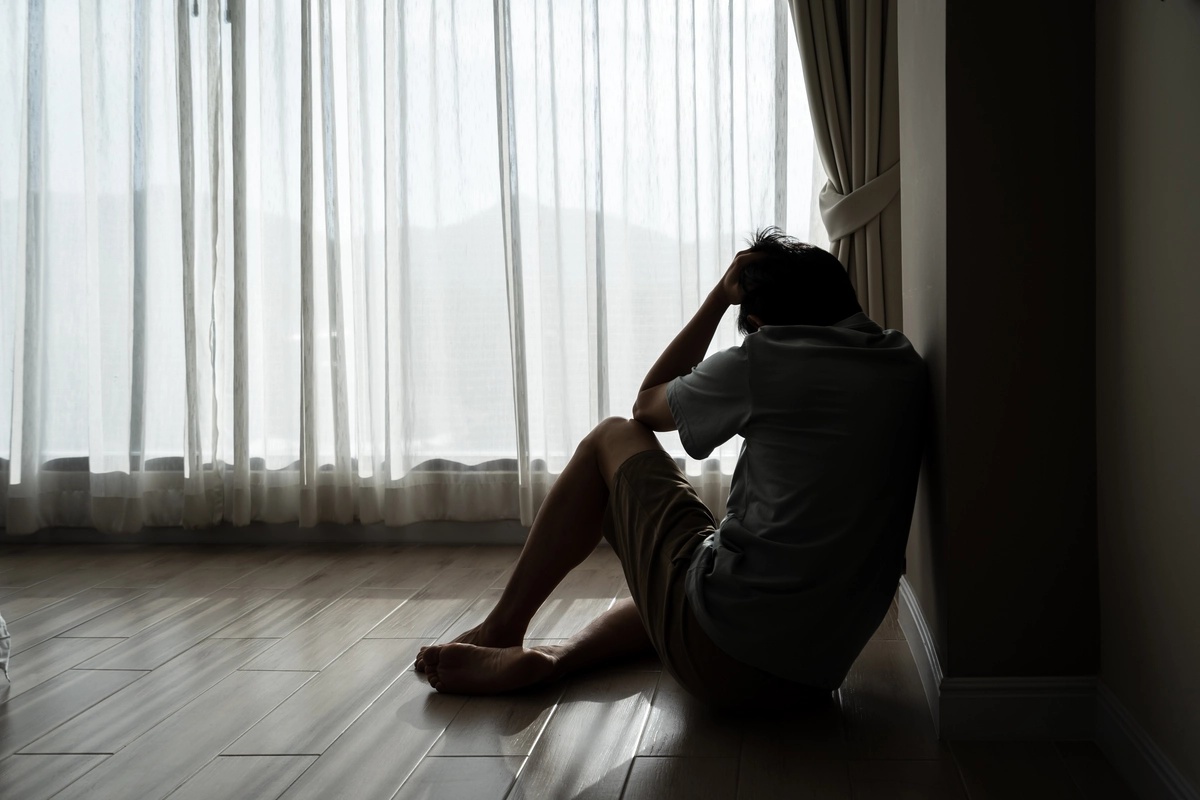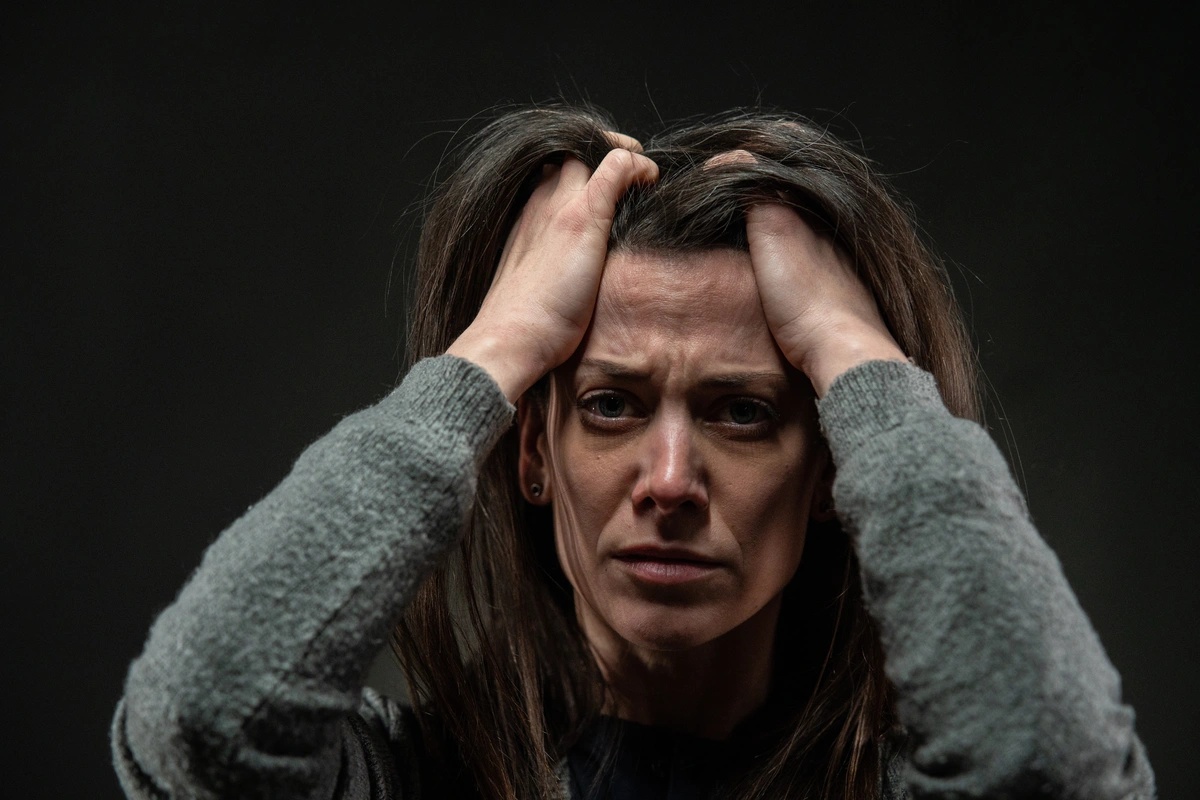Residual Schizophrenia: Understanding, Symptoms, and Treatment


Residual schizophrenia, a subtype of schizophrenia characterized by milder symptoms, remains an enigma in the realm of mental health. Despite advancements in treatment and understanding, this mental disorder continues to impact individuals' daily lives. With roots tracing back to early psychiatric classifications, residual schizophrenia presents ongoing challenges for patients and caregivers alike.
Understanding Residual Schizophrenia
Residual schizophrenia refers to a form of mental illness where individuals experience milder symptoms after a severe episode. Historically, residual schizophrenia was first recognized in the early 20th century by Emil Kraepelin, a renowned German psychiatrist.
The prevalence of residual schizophrenia in the population is estimated to be around 10% of all individuals diagnosed with schizophrenia.
Types and Differences
Residual schizophrenia differs from other types of schizophrenia like paranoid schizophrenia or disorganized schizophrenia due to its symptomatology. Acute schizophrenia is characterized by intense symptoms, while residual schizophrenia involves more subdued manifestations. Unique characteristics of residual schizophrenia include social withdrawal, lack of motivation, and reduced emotional expression.
Key Terminology
Key terms related to residual schizophrenia include "negative symptoms," which refer to the absence of typical behaviors such as emotional responsiveness or social interactions. Another crucial term is "prodromal phase," indicating the period before a full-blown episode where subtle signs start appearing. For instance, a person experiencing negative symptoms may display reduced speech or lack of interest in previously enjoyed activities.
Defining Characteristics of Residual Schizophrenia
Residual schizophrenia is characterized by fragmented delusions and hallucinations that are less severe than during acute episodes. Individuals with residual schizophrenia often exhibit social withdrawal, disorganized speech, and reduced emotional expression. Recognizing these traits is crucial for early intervention and management.
What Makes Residual Schizophrenia Different?
These defining features manifest in individuals through a persistent lack of motivation, reduced ability to experience pleasure, and impaired cognitive functioning. Fragmented delusions may lead to distorted perceptions of reality, making it challenging for individuals to engage in daily activities or maintain relationships. Understanding these characteristics can aid in providing appropriate support and treatment.
It is essential to recognize the defining traits of residual schizophrenia to ensure timely diagnosis and intervention. By identifying symptoms like social withdrawal, reduced emotional expression, and disorganized thoughts early on, healthcare professionals can create tailored treatment plans that address the specific needs of individuals with residual schizophrenia.

Are You Struggling with Mental Health or Addiction?
We Can Help. Call Us Now!
CALL: 877-839-1772
What Are the Symptoms of Residual Schizophrenia?
Common signs and symptoms of residual schizophrenia include persistent auditory hallucinations, disorganized behavior, and flattened affect. These symptoms can significantly impact daily life by causing disruptions in work or school performance, strained relationships with family and friends, and difficulties in self-care.
How the Symptoms Affect People
For instance, an individual experiencing persistent auditory hallucinations may struggle to concentrate on tasks at work or school, leading to decreased productivity. Disorganized behavior can manifest as difficulty in maintaining personal hygiene or following a daily routine. Flattened affect may result in a lack of emotional responsiveness in social interactions, affecting the quality of relationships.
Symptom Examples
Real-life examples of signs and symptoms of residual schizophrenia include a person who hears voices telling them negative things about themselves constantly. This can lead to feelings of worthlessness and isolation. Disorganized behavior may be evident in someone who struggles to complete simple daily tasks due to confusion or lack of focus.
Comparing Types of Schizophrenia
When comparing residual schizophrenia with other subtypes such as paranoid or disorganized schizophrenia, similarities lie in the presence of psychotic symptoms like delusions and hallucinations. However, residual schizophrenia differs in the intensity and frequency of these symptoms compared to acute phases seen in other subtypes.
Implications for diagnosis involve distinguishing between different subtypes based on symptom severity and persistence over time. Treatment implications include tailoring interventions to address the specific symptom profiles associated with each subtype. Understanding these differences is crucial for providing effective care for individuals with varying forms of schizophrenia.
Treatment Options for Residual Schizophrenia
Residual schizophrenia can be challenging to treat due to the lingering and unpredictable nature of its symptoms. However, with proper support and treatment, individuals can manage their symptoms and improve their overall quality of life.
Medication and Therapy
Common medications used to treat residual schizophrenia include antipsychotic medications, which are frequently prescribed to manage residual schizophrenia symptoms. These medications help regulate neurotransmitters in the brain, reducing hallucinations, delusions, and disorganized thinking.
Antipsychotic medication plays a crucial role in stabilizing mood and managing psychotic symptoms. It targets dopamine receptors in the brain, alleviating positive symptoms like hallucinations and paranoia.
Talk therapy like cognitive behavioral therapy (CBT) also has an important role to play. CBT is often used in conjunction with medication for residual schizophrenia treatment. It helps individuals identify and change negative thought patterns, improving coping skills and overall functioning.
Lifestyle Adjustments
Establishing a routine can provide structure and stability for individuals with residual schizophrenia. Regular exercise has been shown to improve mood, reduce stress, and enhance overall well-being.
Maintaining healthy habits, such as proper nutrition and sufficient sleep, is essential for managing residual schizophrenia symptoms. A balanced diet rich in nutrients can support brain health and overall function.
Support Systems
Strong support systems, including family, friends, and healthcare professionals, are vital for individuals with residual schizophrenia. They offer emotional support, practical assistance, and encouragement during challenging times.
Building a support system starts by engaging in support groups to connect with others facing similar challenges. Also, it’s useful to seek guidance from mental health professionals for therapeutic interventions tailored to individual needs.

Are You Struggling with Mental Health or Addiction?
We Can Help. Call Us Now!
CALL: 877-839-1772
What Causes Residual Schizophrenia?
The exact cause of residual schizophrenia is still unknown, but researchers believe it is a result of a combination of genetic, environmental, and neurobiological factors. Some studies suggest that individuals with a family history of schizophrenia may be at higher risk for developing the disorder.
Biological Factors
Biological factors play a crucial role in the development of residual schizophrenia. Genetic predispositions can significantly increase the likelihood of an individual developing this condition. Research has shown that individuals with a family history of schizophrenia are at a higher risk.
Understanding how these biological factors influence the development of residual schizophrenia is essential. The interplay between genetics and brain structure can provide insights into the underlying mechanisms of the disease. By studying these factors, researchers aim to develop more targeted and effective treatment strategies.
Brain Structure
Moreover, brain abnormalities have been linked to residual schizophrenia. These abnormalities can affect various brain regions responsible for cognitive functions and emotional regulation. They can disrupt neural pathways, leading to symptoms associated with the condition.
Genetic Causes
Research has shown that genetics may play a role in the development of residual schizophrenia. Studies have found that individuals with a first-degree relative (parent, sibling, or child) with schizophrenia are more likely to develop the disorder themselves.
Environmental Influences
Environmental factors also play a critical role in the onset of residual schizophrenia. Stress is known to exacerbate symptoms and trigger psychotic episodes in individuals with this condition. High levels of stress can further worsen cognitive functioning and contribute to the chronic nature of residual schizophrenia.
Trauma
Trauma can have a significant impact on individuals predisposed to developing schizophrenia. Traumatic experiences, especially during childhood, can increase vulnerability to mental health disorders later in life.
Addressing past trauma through therapy and support systems is crucial for managing residual schizophrenia.
Social Factors
Social factors such as social isolation and lack of support networks can also influence the course of residual schizophrenia. Individuals facing social challenges may experience increased distress, leading to worsening symptoms. Building strong social connections and fostering a supportive environment are essential aspects of managing this condition.
The interaction between biological and environmental influences is complex. Both genetic predispositions and environmental stressors can interact synergistically, contributing to the manifestation and progression of residual schizophrenia. Understanding these interactions is vital for developing holistic treatment approaches that address both biological vulnerabilities and environmental triggers.

Early Detection of Residual Schizophrenia
Early detection and intervention are crucial in managing residual schizophrenia. It is essential to recognize the warning signs and symptoms of the disorder to seek help promptly.
Recognizing Signs
Detecting early signs of residual schizophrenia is crucial for timely intervention. Look out for persistent symptoms like social withdrawal, reduced emotional expression, and impaired cognitive function. Seeking professional help promptly can lead to an accurate diagnosis.
Early detection plays a vital role in managing residual schizophrenia effectively. It allows for prompt initiation of appropriate treatment strategies, leading to better long-term outcomes. Individuals experiencing symptoms should not hesitate to consult mental health professionals for evaluation and support.
Guidance on recognizing early signs
Importance of early detection
Tips for seeking professional help
Formal Thought Disorder
Formal thought disorder (FTD) refers to disruptions in logical thinking processes, common in residual schizophrenia. Positive symptoms include disorganized speech and thoughts, while negative symptoms manifest as alogia or poverty of speech. Treatment options involve antipsychotic medications and cognitive behavioral therapy.
Understanding FTD is crucial in addressing the cognitive challenges associated with residual schizophrenia. Positive symptoms can be managed with medication, while negative symptoms may require targeted therapeutic interventions. Early identification and treatment are essential for minimizing the impact of FTD on daily functioning.
Content Thought Disorder
Content thought disorder involves abnormalities in the thematic content of thoughts, affecting communication and cognition in residual schizophrenia. These disturbances can lead to disorganized speech patterns and delusional beliefs, impacting interpersonal relationships significantly. Examples include derailment, tangentiality, and thought blocking.
Content thought disorder poses challenges in effective communication and can hinder daily functioning in individuals with residual schizophrenia. It is essential to address these disturbances through comprehensive treatment approaches that target both positive and negative symptoms associated with content thought disorder.
Are You Struggling with Mental Health or Addiction?
We Can Help. Call Us Now!
CALL: 877-839-1772
After Diagnosis: What’s Next?
Being diagnosed with residual schizophrenia can be overwhelming and scary, but it is essential to remember that there is hope for recovery and managing symptoms. After receiving a diagnosis, individuals should work closely with their healthcare team to develop a treatment plan tailored to their specific needs.
Short-Term Outlook
Individuals diagnosed with residual schizophrenia face a challenging short-term prognosis. The immediate focus lies on stabilizing symptoms and preventing relapses. Managing medication adherence and attending therapy sessions are crucial steps in this phase. Assessment of current symptoms and regular monitoring plays a vital role in adjusting treatment plans.
Improving Quality of Life
Moreover, the short-term goal is to enhance daily functioning and improve quality of life. Patients may experience study difficulties, social withdrawal, or mood swings that require immediate attention. Building a support system comprising family, friends, and healthcare providers can aid in navigating these challenges effectively.
To cope with the short term, individuals with residual schizophrenia can benefit from establishing routines, engaging in study activities they enjoy, and practicing stress management techniques. Structured environments and clear communication can help reduce anxiety levels and promote stability.
Long-Term Expectations
In the long term, individuals living with residual schizophrenia may experience varying outcomes based on their response to treatment and support systems. While some patients achieve significant symptom reduction and functional improvement, others may face persistent challenges despite ongoing interventions.
Managing the Symptoms Is Key
Managing residual schizophrenia over time involves addressing potential relapses, cognitive impairments, and social isolation. It is essential for patients to stay connected with mental health professionals for continuous assessment of their condition. Long-term expectations include focusing on holistic well-being encompassing physical health, social connections, and emotional stability.
Planning for the future while managing residual schizophrenia involves setting realistic goals, maintaining a healthy lifestyle, and fostering independence where possible. Support from family members and mental health services plays a crucial role in ensuring long-term stability and overall wellness.
Impact on Daily Life
Residual schizophrenia can significantly impact an individual's daily life and functioning. The residual symptoms can make it challenging to maintain relationships, hold a job, or engage in social activities.
Personal Effects
Living with residual schizophrenia can have profound personal effects, influencing various aspects of individuals' lives. The flat affect associated with the condition can lead to emotional challenges, where individuals may struggle to express or experience emotions fully. This emotional blunting can impact relationships and daily interactions, making it challenging to connect with others on an emotional level.
The effect of residual schizophrenia on activities of daily living can be significant. Individuals may find it difficult to engage in routine tasks or maintain interest in previously enjoyable activities. This lack of motivation and drive can lead to a sense of apathy and disinterest in life, affecting overall quality of life.
To cope with these personal effects, individuals living with residual schizophrenia often benefit from developing coping mechanisms and self-care strategies. These strategies may include therapy, medication management, establishing routines, engaging in social support networks, and practicing mindfulness techniques. By incorporating these strategies into their daily lives, individuals can better manage the personal challenges posed by residual schizophrenia.
Social Implications
The social implications of residual schizophrenia extend beyond individual experiences to impact relationships and interactions with others. Stigma and discrimination are common challenges faced by individuals with the condition, leading to social isolation and feelings of alienation. Society's attitudes towards mental health conditions like residual schizophrenia can create barriers to social inclusion and acceptance.
Social Interactions
Navigating social interactions can be complex for individuals with residual schizophrenia due to misconceptions and prejudices surrounding the condition. Building awareness and understanding among family members, friends, and communities is crucial in fostering supportive environments for those affected by residual schizophrenia. Education about the condition can help dispel myths and promote empathy and compassion.
Finding Supportive Relationships
In dealing with social challenges, individuals are encouraged to seek out supportive relationships, join peer support groups or therapy sessions, communicate openly about their experiences, set boundaries when needed, and prioritize self-care practices. By actively addressing social implications and advocating for themselves within their social circles, individuals with residual schizophrenia can cultivate a more inclusive and understanding environment.

Are You Struggling with Mental Health or Addiction?
We Can Help. Call Us Now!
CALL: 877-839-1772
Seeking and Finding Treatment for Residual Schizophrenia
Residual schizophrenia is a complex and challenging disorder to manage, but with proper treatment and support, individuals can improve their overall quality of life.
Initial Steps
After receiving a diagnosis of residual schizophrenia, the first crucial step is to create a comprehensive treatment plan. This plan should include medication management, therapy sessions, and lifestyle adjustments. Seeking support from family, friends, and mental health professionals is essential for managing symptoms effectively.
Accessing mental health services promptly can significantly improve the quality of life for individuals with residual schizophrenia.
Establishing a Routine Helps
It is vital to prioritize self-care and well-being by establishing a routine that includes regular therapy sessions and medication adherence. Creating a support network of understanding individuals can provide emotional stability during challenging times. Individuals diagnosed with residual schizophrenia should explore available resources such as community support groups and online forums to connect with others facing similar challenges. Seeking help from mental health professionals ensures proper monitoring of symptoms and adjustment of treatment plans when necessary.
Choosing the Right Path
When it comes to managing residual schizophrenia, selecting the right treatment path is crucial for long-term success. Personalized care tailored to individual needs plays a significant role in symptom management. Collaborating closely with healthcare providers allows for customized treatment plans that address specific symptoms and concerns. Advocating for oneself by expressing preferences and concerns regarding treatment options empowers individuals to actively participate in their care.
Education Also Helps
Individuals should educate themselves about different treatment modalities available for residual schizophrenia, including medication options, therapy approaches, and lifestyle modifications. Making informed decisions about treatment options involves weighing the benefits and potential side effects of each intervention.
Engaging in open communication with healthcare providers promotes transparency and fosters a collaborative approach to treatment. By actively participating in decision-making processes, individuals can ensure that their treatment aligns with their goals and preferences.
Closing Thoughts
Now that you have delved into the realm of residual schizophrenia, understanding its intricacies, causes, symptoms, treatments, prognosis, and impact on daily life, you are equipped with valuable knowledge.
Remember, seeking and finding treatment is crucial in managing this condition effectively. By being proactive in your approach to treatment and staying informed about the latest advancements, you can navigate the challenges posed by residual schizophrenia with resilience and hope.
Your journey towards better health starts with taking that first step towards seeking help and support.
Residual Schizophrenia Treatment in Orange County
Residual schizophrenia, like other forms of schizophrenia, is devastating. When it's not treated, its symptoms will destroy everything around you, leading to problems like addiction, homelessness, and worse.
You're not alone in your struggle. With the right help, you'll be able to manage your symptoms of residual schizophrenia and live a life worth living. The Forge Recovery Center provides effective help for residual schizophrenia and more.
Guided by a trauma-informed approach, our team will help you explore the roots of residual schizophrenia and treat it effectively. We'll work closely together with you to develop new coping mechanisms, ways of thinking, and more to help you live the life you truly deserve.
Reach out to The Forge Recovery Center today to learn more.



